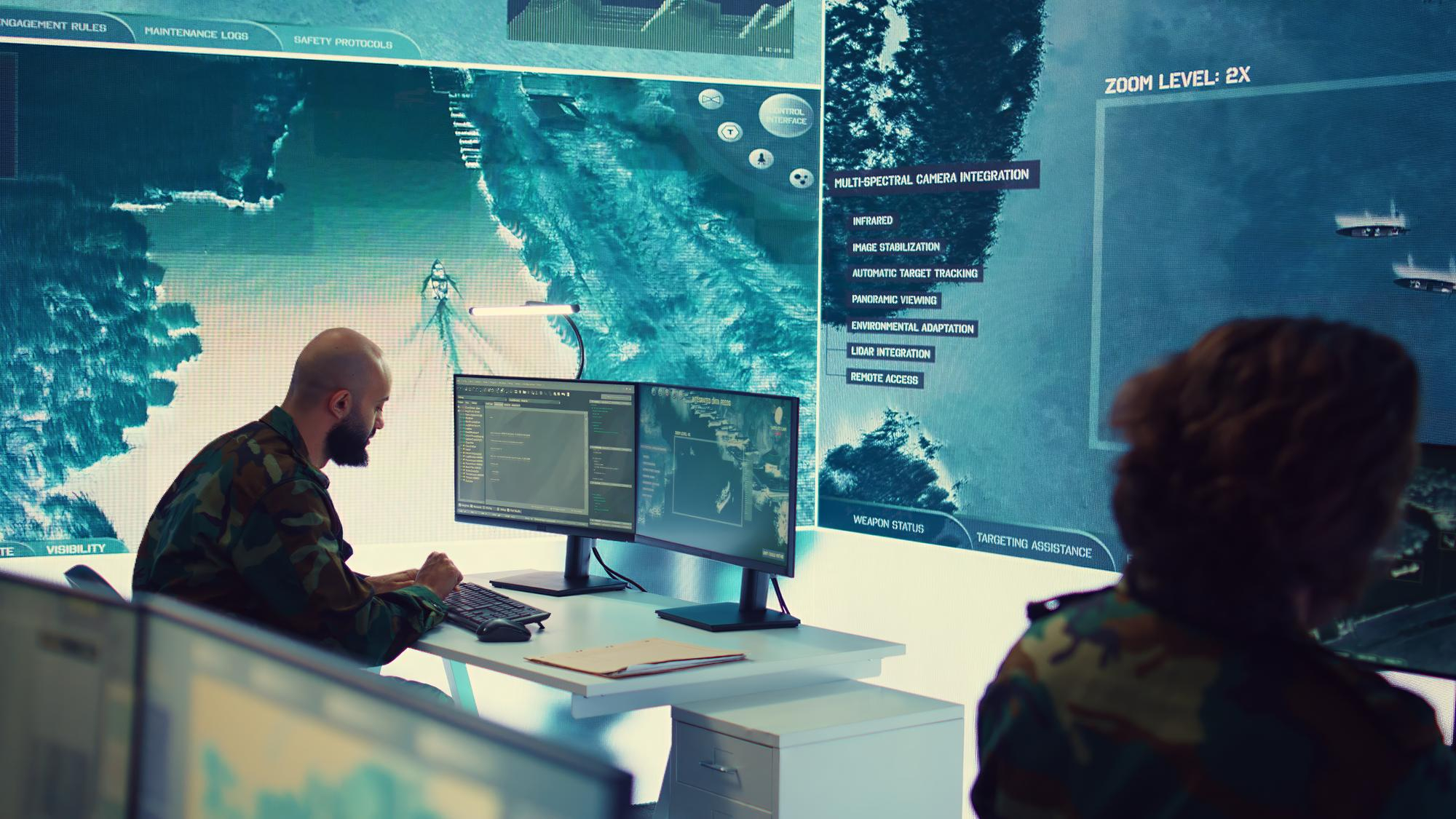In an age where digital innovation accelerates daily, the Arabian Gulf region is at the forefront of using advanced technologies to address growing security challenges. As regional economies diversify, integrating technology into security frameworks is proving essential to protect sensitive information, infrastructure, and public safety. From cybersecurity protocols to AI-driven surveillance, Gulf nations are harnessing technology to safeguard their people, assets, and future.
The Rise of Cybersecurity in the Gulf
With rapid digital expansion, cybersecurity has become a primary focus in the Arabian Gulf. Cyber threats have grown more complex, targeting government and private institutions alike. Gulf countries are investing in cybersecurity to detect and mitigate threats before they escalate. Many nations in the region have established national cybersecurity centers dedicated to continuously monitoring cyber activity, implementing response measures, and educating businesses and individuals on cyber hygiene.
Governments are increasingly instituting more stringent data protection regulations to ensure that enterprises adhere to optimal standards in the preservation of consumer data. This becomes particularly imperative as the Internet of Things (IoT) proliferates, interconnecting a wide array of entities ranging from intelligent residential systems to public transportation networks. Protecting these interconnected devices requires sophisticated, adaptive cybersecurity strategies.
Artificial Intelligence: A Game Changer for Security
Artificial intelligence (AI) is a powerful tool transforming security across the Gulf. AI-driven analytics are central to surveillance systems, enabling faster and more accurate threat detection. AI allows security teams to analyze extensive data from surveillance, drones, and social media to detect anomalous patterns indicative of security threats.
One domain in which artificial intelligence exerts a considerable influence is facial recognition. Extensively employed in aviation hubs and communal environments, this technological advancement facilitates the swift identification of individuals of interest, thereby serving an essential function in border security and public safety. However, Gulf countries adopting AI in security must also consider ethical concerns, such as privacy, to balance public safety with individual rights.
Blockchain: Revolutionizing Data Security
Blockchain, known for its role in cryptocurrency, is now finding applications in data security across the Gulf. As a distributed and immutable record-keeping system, blockchain offers a robust mechanism for the secure storage and transmission of data. This is especially valuable for government records and transactions, which can be vulnerable in conventional systems. By implementing blockchain technology, Gulf countries are enhancing data management, reducing data breach risks, and ensuring sensitive information remains secure.
In finance and healthcare, blockchain prevents fraud and unauthorized access. Financial institutions utilize blockchain technology to ensure the precision and transparency of transactions, whereas the healthcare sector leverages it to safeguard patient records and enable secure data exchange among professionals.
The Role of Smart Cities in Security
Gulf nations are pioneering the development of smart cities that utilize interconnected technologies to enhance public safety and quality of life. Equipped with IoT-enabled infrastructure, these cities collect and analyze data in real time. Smart city technology can monitor air quality, manage traffic, and support security operations. By employing an array of sensors, cameras, and diverse Internet of Things (IoT) technologies, governmental authorities attain a comprehensive insight into urban dynamics, consequently enabling swifter responses to emergencies and improving the efficacy of decision-making frameworks.
Smart cities also help law enforcement prevent and respond to crime more effectively. Through the examination of data obtained from diverse sources, governmental authorities are enabled to discern areas of heightened risk, distribute resources in a more effective manner, and even forecast prospective security threats. Nonetheless, as the volume of data accumulates, the implementation of comprehensive privacy and data protection protocols becomes imperative to guarantee the safeguarding of citizens’ information.
Drones and Autonomous Vehicles in Surveillance
The Gulf region is rapidly adopting drones and autonomous vehicles as part of its security infrastructure. These technologies offer a range of applications, from monitoring borders to crowd control at major events. Unmanned aerial vehicles outfitted with advanced imaging technology, such as high-resolution cameras and thermal sensors, furnish governmental entities with an aerial perspective of extensive regions, thereby facilitating the identification of illicit activities and enabling timely intervention.
Autonomous vehicles are also a valuable resource in public safety. For example, driverless patrol cars can monitor streets in real time, transmitting data back to central command centers. This helps free up human resources for other critical tasks, enhancing overall efficiency. As the proliferation of unmanned aerial vehicles and self-operating transportation systems increases, regulatory paradigms are undergoing transformation to tackle safety, privacy, and operational complexities inherent in these technological advancements.
Addressing Security Challenges Through Collaboration
Developing a strong technological security infrastructure requires collaboration. Gulf nations are increasingly working together, sharing knowledge and resources to tackle regional security threats. Additionally, partnerships with technology companies and research institutions worldwide help the region stay updated with the latest security technology developments. By fostering such collaborations, Gulf countries are building resilient security systems capable of countering present and future threats.
Conclusion
As technology continues to advance, Gulf nations are using innovative security measures to address modern challenges. Through integrating cybersecurity, AI, blockchain, and smart city systems, Gulf countries are enhancing operational efficiency and gaining a strategic edge in safeguarding their infrastructure and citizens. However, successfully adopting these technologies requires overcoming challenges such as skill shortages, data privacy concerns, and evolving regulatory demands. Embracing a proactive approach to technological security adaptation will be vital for Gulf nations as they build a safer, digitally resilient future.
The upcoming International Arabian Gulf-Security Conference (IAGSC) offers a unique platform for security experts, technology innovators, and policymakers to explore these advancements and their impact on the region. The conference will bring together leaders to discuss insights, explore strategies, and foster collaboration in addressing regional security challenges. By embracing new technologies and promoting knowledge exchange, Gulf nations are well-positioned to lead in the field of security innovation, ensuring a safer future for their citizens.





